Thanks to rapid advances in sensor technology, algorithms, communication, electronics and actuators, our mobility is currently undergoing a major transformation. Currently, the focus is still on networking and electrification. However, with driver assistance systems such as speed, steering and lane keeping assistants, we are on the threshold of highly automated driving. The degree programme focuses on the interaction of different technologies in order to qualify engineers for the development of automated mobility systems. Students acquire the necessary competences in the subject areas characteristic of automated mobility systems:
- Sense: Sensor technology, sensor systems and sensor data fusion for recognising and recording the environment.
- Think: Processing the information obtained via sensors to create a driving strategy with the help of software and intelligent algorithms.
- Act: Safe implementation of the driving strategy with the help of drive, steering and braking forces by controlling and regulating actuators.
The language of instruction for the course is English. By bringing together students from all over the world, we prepare them to work together in international teams.
Occupational fields and career prospects
Due to the great future potential of automated driving technologies, specialised professions are increasingly emerging that are focused on the development of autonomous mobility. These are characterised by expertise in computer science, sensor technology, control technology and machine learning - expertise that the degree programme teaches. Development engineers for autonomous driving are primarily employed by vehicle producers themselves, but also by many supplier companies. These include companies in the IT, electrical and computer industries that develop and produce technical components for autonomous driving in the form of hardware and software. Development engineers for autonomous driving also find promising jobs in research institutes, at state authorities or at universities.



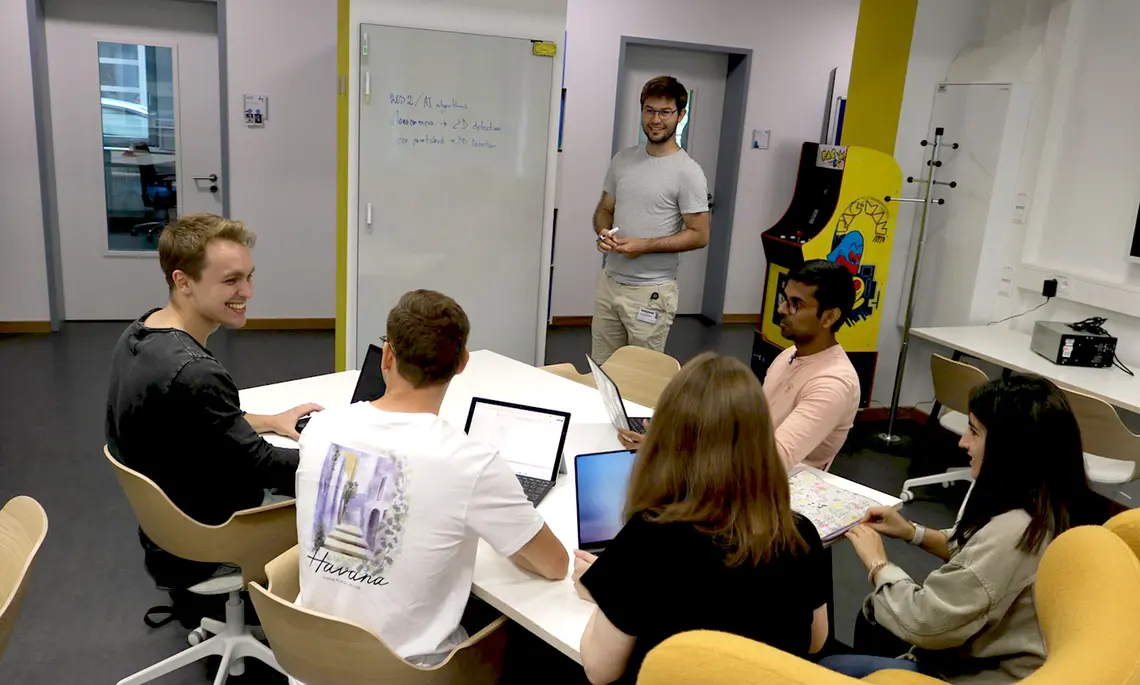
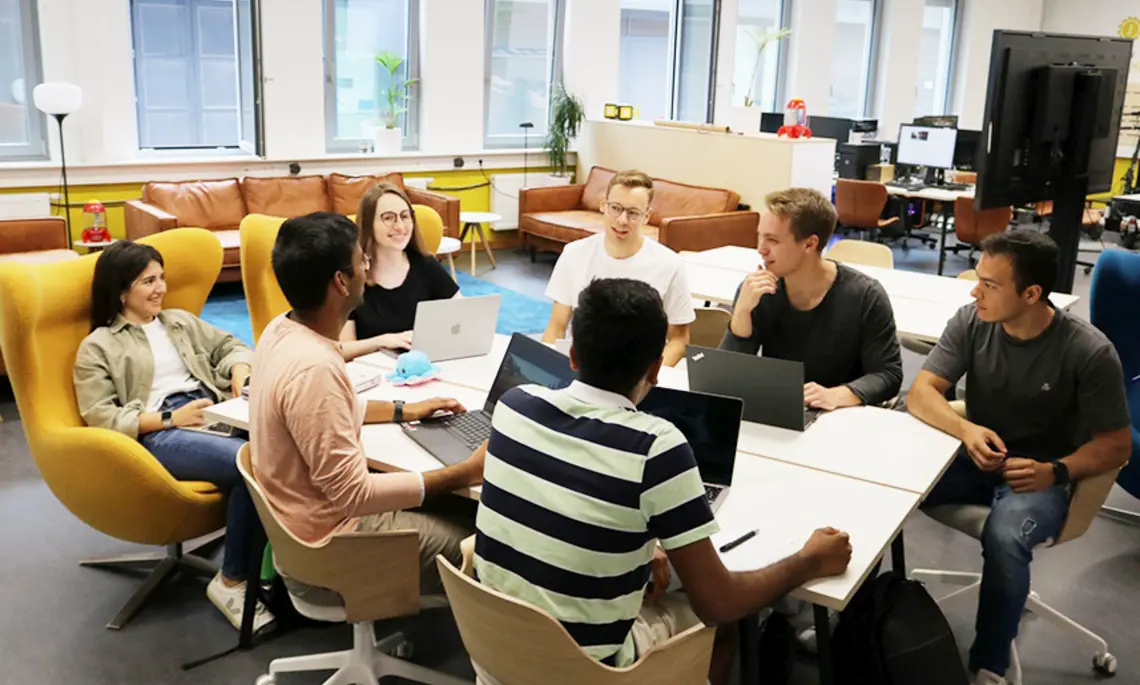
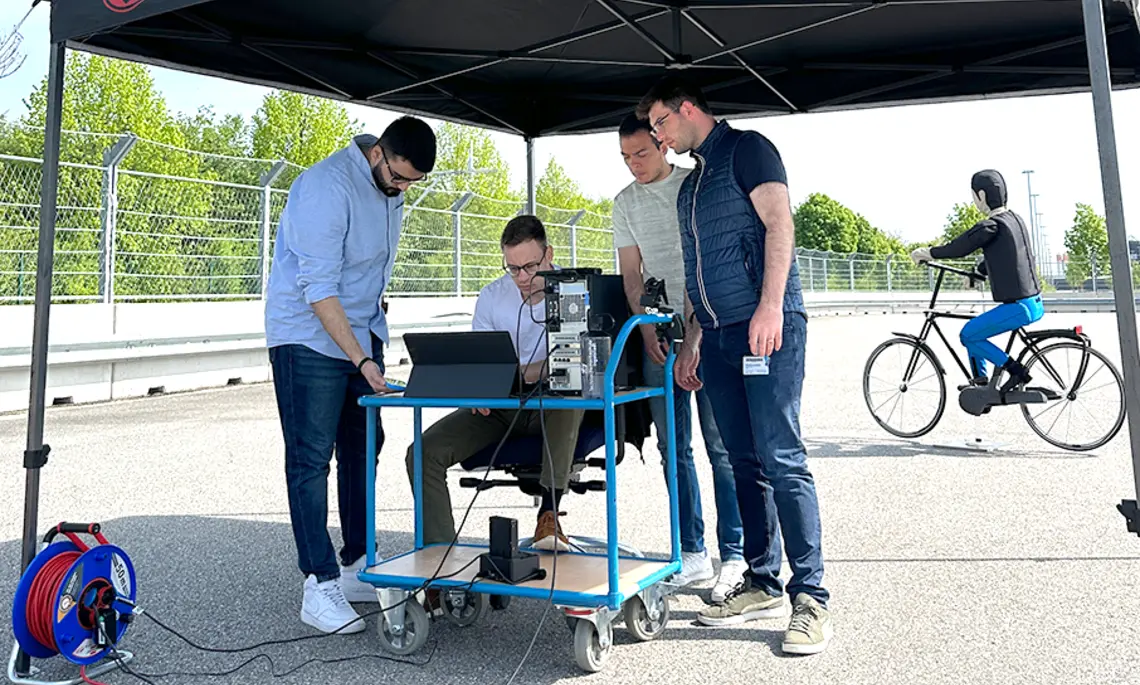
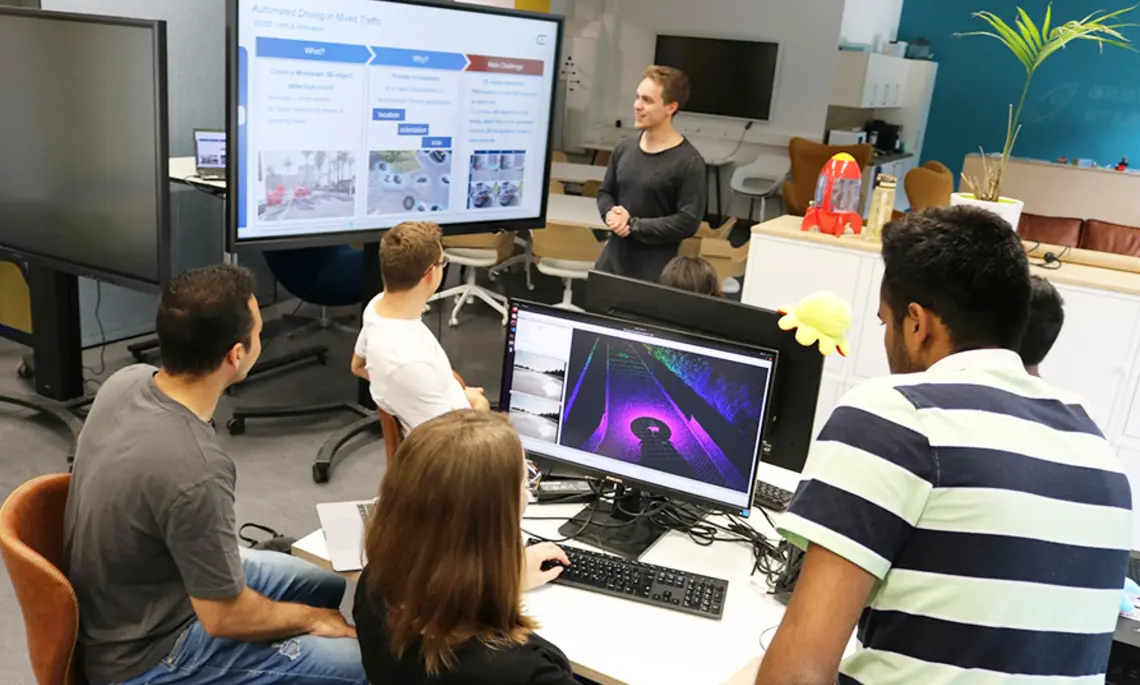
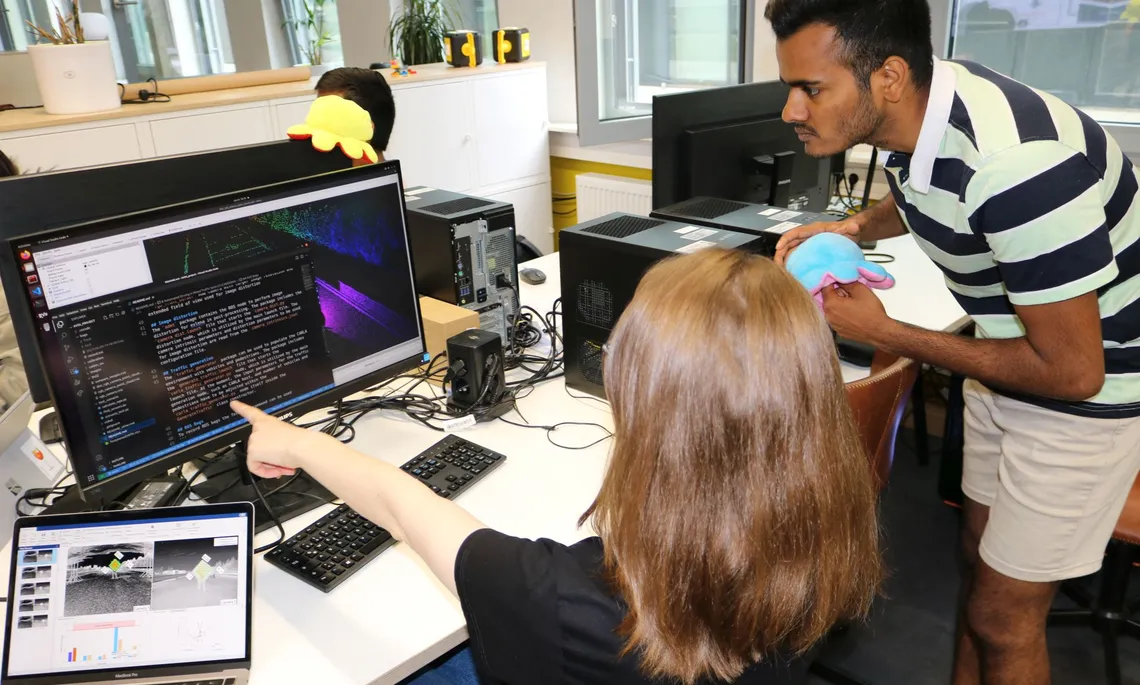




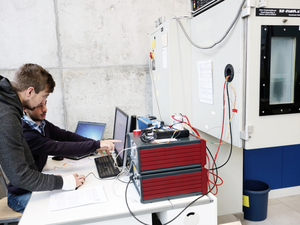

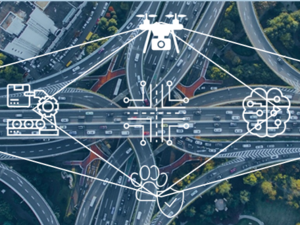
![[Translate to English:] Logo Akkreditierungsrat: Systemakkreditiert](/fileadmin/_processed_/2/8/csm_AR-Siegel_Systemakkreditierung_bc4ea3377d.webp)








![[Translate to English:] Logo IHK Ausbildungsbetrieb 2023](/fileadmin/_processed_/6/0/csm_IHK_Ausbildungsbetrieb_digital_2023_6850f47537.webp)


